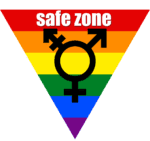Speak Out to End Domestic Violence
Speak Out to End Domestic Violence
Domestic violence can affect all people, from all backgrounds
It doesn’t matter your age, race, religion, gender, gender identity, sexuality or socioeconomic status. Everyone deserves peace.
File for a Protective Order in the State of Illinois
File for an
Order of Protection
(By Illinois Legal Aid Online)
File for a
Stalking No Contact Order(By Illinois Legal Aid Online)
File for a
Stalking No Contact Order
(By Illinois Legal Aid Online)


